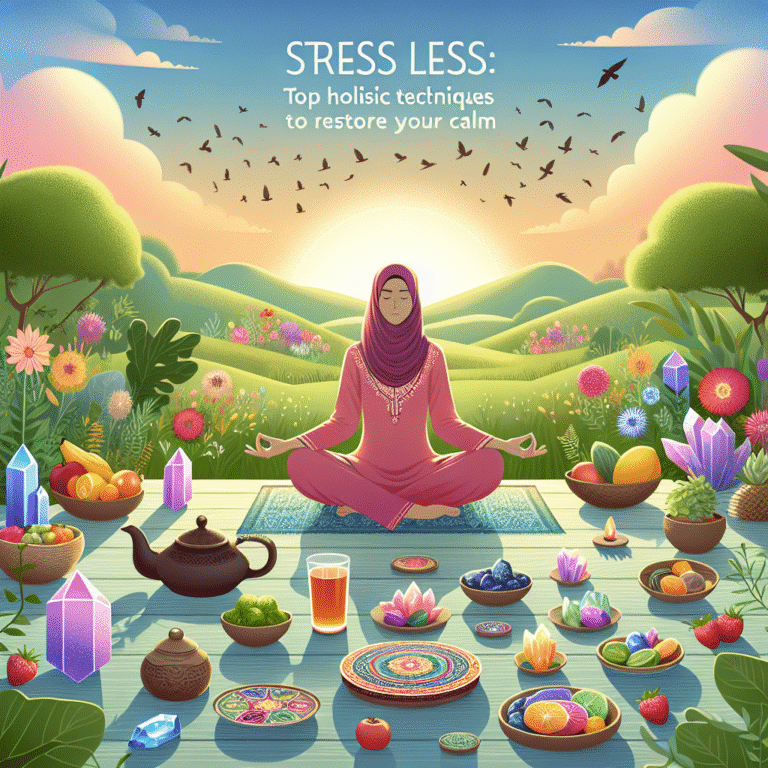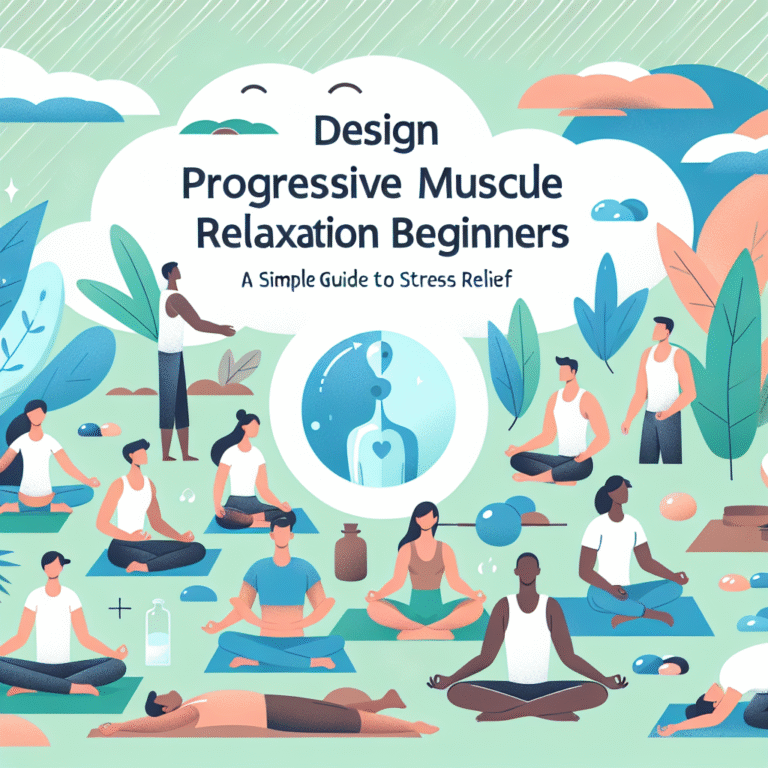
Unlock Better Sleep: Essential Sleep Hygiene Practices for Restful Nights
Introduction
In our fast-paced world, sleep often takes a backseat, leading many to endure restless nights and groggy mornings. If you find yourself tossing and turning, struggling to fall asleep or stay asleep, you’re not alone. The quality of our sleep profoundly affects our physical health, mental clarity, and overall quality of life. Thus, it’s becoming increasingly vital to unlock better sleep by following essential sleep hygiene practices.
In this article, we delve into practical strategies that can transform your sleep routine from chaotic to serene. We’ll provide evidence-based insights, real-life case studies, and actionable tips that will surely enhance your nightly rest. Are you ready to discover the secrets to restful nights? Let’s get started!
Understanding Sleep Hygiene
What is Sleep Hygiene?
Sleep hygiene refers to a collection of practices that contribute to a good night’s sleep. These practices can create an optimal environment for sleep, making it easier for your body to wind down and restore itself overnight. Emphasizing proper sleep hygiene not only aids in unlocking better sleep but also enhances overall health and well-being.
Why is Sleep Hygiene Important?
The importance of sleep hygiene is backed by numerous studies. According to the National Sleep Foundation, consistent sleep patterns can improve mood, cognitive function, and immune response. With good sleep hygiene, you can experience reduced insomnia symptoms, improved sleep quality, and increased daytime productivity. Implementing sleep hygiene can lead you on a journey toward tranquil nights.
Essential Sleep Hygiene Practices
To truly unlock better sleep, here are the key practices you should consider adopting:
1. Create a Sleep-Inducing Environment
- Temperature Control: Your bedroom should be cool, ideally between 60-67°F (15-19°C). Too hot or cold can disrupt your natural sleep cycle.
- Lighting: Limit exposure to bright lights, especially blue light from screens, before bedtime. Use soft lamps or blackout curtains to create a cozy atmosphere.
| Element | Ideal Conditions |
|---|---|
| Temperature | 60 – 67°F (15 – 19°C) |
| Lighting | Soft, dim lighting |
| Noise Level | Quiet, peaceful |
2. Establish a Sleep Schedule
Going to bed and waking up at the same time every day reinforces your body’s natural circadian rhythm. Even on weekends, try to maintain this schedule to avoid disrupting your sleep-wake cycle.
3. Develop a Relaxation Routine
Incorporating a wind-down routine before bed signals your body that it’s time to sleep. Consider activities such as meditation, gentle yoga, or reading to reduce stress and prepare your mind for rest.
Case Study: The Power of Routine
A study conducted by researchers at the University of Michigan found that individuals who adhered to a consistent sleep schedule reported improved sleep quality and daytime alertness. By establishing a fixed bedtime and pre-sleep routine, participants experienced fewer sleep disturbances and enhanced mood.
4. Be Mindful of What You Eat and Drink
What you consume in the hours leading up to sleep can significantly impact sleep quality.
- Caffeine: Limit caffeine intake to early afternoon.
- Alcohol: While it might help you fall asleep, it disrupts sleep cycles later in the night.
5. Get Regular Physical Activity
Engaging in regular physical exercise is one of the most effective ways to unlock better sleep. Aim for at least 30 minutes of moderate aerobic exercise, such as walking, on most days. Just ensure you don’t work out too close to bedtime, as it may have the opposite effect.
6. Limit Naps
While short naps can be refreshing, long or irregular napping during the day can adversely affect nighttime sleep. If you need to nap, try to limit it to 20-30 minutes in the early afternoon.
7. Keep a Sleep Diary
Keeping track of your sleep patterns, habits, and how you feel can provide insights into what works best for you. Record factors such as bedtime, wake-up time, food and drink consumption, and how you feel the next day.
8. Use Sleep-Friendly Technology
While technology is often implicated in poor sleep hygiene, some devices can help you work toward unlocking better sleep. Consider white noise machines or apps that promote relaxation through soothing sounds or meditation.
Additional Insights on Unlocking Better Sleep
The Role of Mental Health
Mental health issues can contribute significantly to sleep problems. Practices like cognitive-behavioral therapy for insomnia (CBT-I) have shown effectiveness in addressing sleep disturbances connected with anxiety or depression.
The Scientific Perspective
Recent research has suggested that our bodies rely on external cues, such as light and temperature, to regulate sleep. Understanding this biological mechanism reinforces the need for improving sleep hygiene to influence sleep positively.
Table: Impact of Sleep Hygiene on Health
| Health Aspect | Impact of Poor Sleep Hygiene | Impact of Good Sleep Hygiene |
|---|---|---|
| Cognitive Function | Impaired memory and decision-making | Enhanced creativity and critical thinking |
| Mood | Increased irritability and mood swings | Improved mood stability |
| Immune Response | Weakened immune function | Stronger immune defenses |
| Physical Health | Higher risk of chronic illnesses | Better cardiovascular and metabolic health |
Conclusion
Unlocking better sleep is not merely a quest for nightly rest; it is a pathway to improved overall health, heightened productivity, and a more fulfilling life. By adopting these essential sleep hygiene practices, you can transform your nights from restless to restful. Establish a sleep hygienic environment, develop a consistent routine, and be mindful of consumption habits—these actions will open the door to deeper, more restorative sleep.
As you journey into these practices, remember that change doesn’t happen overnight (pun intended!). It takes time and consistency to reap the benefits. Start small and build up to a routine that works best for you. You have the power to enhance your quality of sleep, and by doing so, you can significantly improve your quality of life.
FAQs
1. How long should I sleep each night?
Most adults need between 7-9 hours of sleep per night. However, individual needs may vary.
2. What if I can’t fall asleep after lying in bed for a while?
If you can’t fall asleep within 20 minutes, get out of bed and engage in a relaxing activity until you feel sleepy again.
3. Are sleep medications a good solution for sleep problems?
While sleep medications can be helpful short-term, they do not address the underlying causes of insomnia. Consider consulting a healthcare professional for long-term solutions.
4. Can technology really help with sleep?
Yes, certain technologies like sleep trackers and white noise machines can aid in creating a better sleep environment and help monitor your sleep patterns.
5. How can I improve my sleep environment?
Ensure your bedroom is cool, dark, and quiet. Invest in a comfortable mattress and pillows, and consider using blackout curtains and a white noise machine if necessary.
By integrating the practices outlined in this article into your routine, you will be better prepared to unlock better sleep and enjoy restful nights once and for all. Make your sleep hygiene a priority today!
















